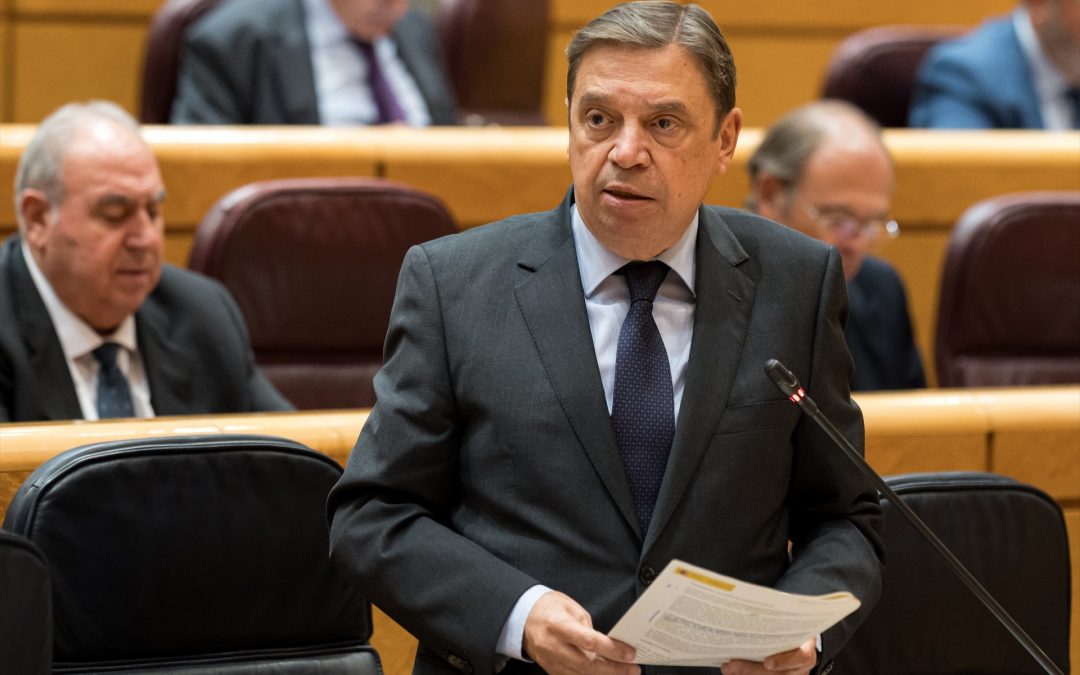Madrid – The Minister of Agriculture, Fisheries and Food of the Government of Spain, Luis Planas, has assured the advisors of the branch that he will defend fishing quotas that ensure the viability and profitability of the Spanish fleet during next week’s negotiation in Brussels at the Council of Ministers of the European Union, which will be held on December 9 and 10 in Brussels.
In this Council of Ministers, fishing possibilities for 2025 and 2026 in the Atlantic will be addressed for fish stocks that are the exclusive competence of the EU, since negotiations with the United Kingdom and Norway are still open.
During the meeting of the Consultative Committees on Agricultural Policy and Fisheries Policy for Community Affairs, Planas advanced the “complexity” of these negotiations, although he said that Spain will insist on considering the social and economic impact when establishing the Total Allowable Catches (TAC) and quotas.
Regarding the Mediterranean, the Spanish representative emphasized that the negotiations will be “complex,” as this year marks the end of the five-year transitional period of the multiannual plan, with a “disappointing proposal” from the European Commission, which, in his opinion, does not take into account the efforts made by the fishing sector and “prevents the viability of the trawler fleet.”
Therefore, Spain, France, and Italy have signed a joint declaration to ask the European Commission for a moratorium on fisheries management measures in the Mediterranean Sea for 2025.
In Spain’s case, the proposal would mean the disappearance of the 556 boats that make up the trawling fleet along the entire Mediterranean coast and the loss of the 17,000 jobs it generates.
On the other hand, Planas pointed out that the quotas for the Northwest Atlantic Fisheries Organization (NAFO) have already been agreed upon, with good results for the Spanish cod fleet, especially the Galician fleet, which, after 32 years of moratorium, will be able to fish again in international waters of the Grand Banks of Newfoundland. He also appreciated the improvements achieved at the meeting of the International Commission for the Conservation of Atlantic Tunas (ICCAT).
Regarding agricultural issues, the Minister of Agriculture has informed the advisors that the Council will address the status of the regulation of plants obtained with new genomic techniques (NGT). In this regard, he stated that Spain will continue to work to obtain a Council agreement that facilitates the market introduction of NGT plants, especially those that can be considered equivalent to those obtained through conventional breeding.
He also noted that the Hungarian presidency will present a point on the bioeconomy opportunities for the agricultural sector. Planas understands that the future strategy designed in this area should reflect the importance of the circular bioeconomy, to ensure food security and allow progress towards “more efficient, profitable, and competitive” agri-food production.
The Spanish Minister advanced that the Council will also address various technical issues on the proposed regulation of the production and marketing of plant reproductive material, the status of the regulation on animal welfare during transport, various veterinary issues, especially those related to vaccines, or the progress in the regulation of resilient European forests. (December 2)
 go to the original language article
go to the original language article
